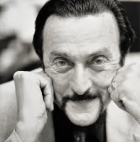From Heavens to Hells to Heroes
In their arsenal of general resistance strategies, the first is always trying to be mindful of their place in any behavioral context, of not going on automatic pilot that triggers scripted behavior to unfold without critical awareness. They engage in critical thinking that goes beyond accepting other peoples’ definition of the situation, asking questions about how and why, and what happens down the road if they follow the prescribed path. That means developing “discontinuity detectors,” a sense of awareness of things that don’t fit, are out of place in this setting, that don’t make sense to you. It means asking questions, getting the information you need to take responsible action. It is important also not to fear interpersonal conflict, and to develop the personal hardiness necessary to stand firm for cherished principles. Think not of getting into conflicts, but rather challenging others to support their means, their ends, and their ideology. Take nothing for granted, be a hard-headed behavioral accountant. Finally, those who resist unwanted situational influences are willing to admit mistakes, of being wrong, of cutting bait rather than sticking with prior bad decisions; thus, they do not have to rationalize away earlier commitments made without full awareness of their consequences. Our hardy band of resistors insist also on retaining their personal sense of identity and self-worth, of not allowing others to de-individuate them or to de-humanize them.
Promoting the Heroic Imagination in Ordinary Heroes
When the mass of humanity is blindly obeying unjust authorities or bending to the will of corrupt systems of dominance, the few who resist are really heroes. Heroes are not only the courageous few whose brave physical dangers to help others in distress. Heroes are all those willing to make personal and social sacrifices for the good of others or their society. Social heroism involves putting one’s self at risk in the service of an important principle or idea. Being a hero is not simply being a good role model or a popular sports figure. Heroism in service to a noble idea is usually not as dramatic as heroism that involves immediate physical peril. Yet social heroism is very costly in its own way, often involving loss of financial stability, lowered social status, loss of credibility, arrest, torture, risks to family members, and, in some cases, death. In contrast to those whose heroism involves life-long sacrifices or ordering their lives around principles of passive resistance to injustice, such as Mahatma Ghandi, Nelson Mandela, Mother Teresa, or Martin Luther King, Jr., most heroism can be a sudden, one-time act. It can be an almost instantaneous reaction to a situation, like that of the army reservist Joe Darby, who revealed the photos of Abu Ghraib abuses to a criminal investigator, and thereby stopped those abuses.
This heroic deed of this average young man reveals what I have termed the “banality of heroism.” The idea of the banality of heroism debunks the myth of the “heroic elect,” a myth that reinforces the false notion of ascribing very rare personal characteristics to people who do something special—to see them as superhuman, practically beyond comparison to the rest of us. Just as with the psychology of evil, situations have immense power to bring out heroic actions in people who never would have considered themselves heroes. In fact, the first response of many people who are named heroes is to deny their own uniqueness with statements such as, “I am not a hero, anyone in the same situation would have done what I did,” or “I just did what needed to be done.” Immediate life and death situations, such as when people are stranded in a burning house or a car wreck, are clear examples of situations that galvanize some people into heroic action. But other situations—such as being witness to discrimination, corporate corruption, government malfeasance, or military atrocities—not only bring out the worst in people; sometimes they bring out the best in others.
I believe that an important factor that may encourage heroic action is the stimulation of the “heroic imagination”-- the capacity to imagine facing physically or socially risky situations, mentally struggle with the hypothetical problems these situations generate, and consider one’s actions and the consequences. Such a mental orientation may make people more likely to act heroically when the time comes. By considering these issues in advance, the individual becomes more prepared to act when and if a moment arises that calls for heroism. It might mean stopping the cab driver as he starts telling his favorite racist or sexist joke. It could mean intervening when a relative starts slapping her child around at a family event. It should mean willingness to risk losing your job by exposing fraud and deception as Sherron Watkins did at Enron, or even greater risks as Debby Layton did in exposing the dangers of Jim Jones’ Peoples Temple cult in Guyana.
Strengthening the heroic imagination may help to make people more aware of the ethical tests embedded in complex situations, while allowing the individual to have already considered and to some degree transcended the costs of their heroic action. Seeing one’s self as capable of the resolve necessary for heroism may be the first step toward taking a heroic action.

